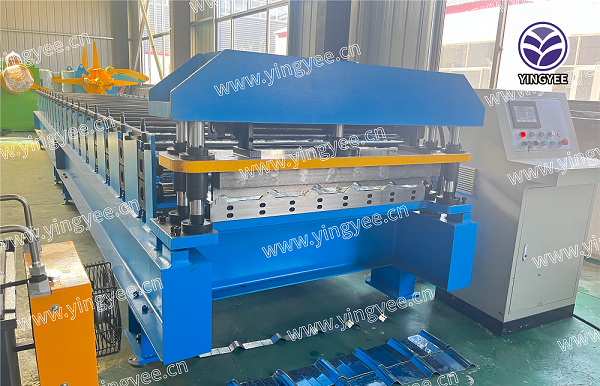
The Evolution and Importance of Roof Tile Forming Machines
In the modern construction industry, the significance of roofing materials cannot be overstated. Roof tiles not only provide essential protection against the elements but also contribute to the aesthetic appeal of buildings. One of the pivotal technologies that have emerged in this sector is the roof tile forming machine. These machines have revolutionized the way roof tiles are produced, offering numerous benefits in terms of efficiency, quality, and sustainability.
What is a Roof Tile Forming Machine?
A roof tile forming machine is a specialized piece of equipment designed to manufacture various types of roof tiles, including clay, concrete, and metal tiles. The process begins with raw materials, which are fed into the machine. The machine then processes these materials through forming, pressing, and possibly molding, leading to the creation of finished roof tiles. These tiles can be custom designed in terms of shape, size, and color, catering to diverse architectural needs and preferences.
The Production Process
The operation of a roof tile forming machine typically involves several key stages. Initially, the raw materials, such as clay or concrete slurry, are mixed to achieve the desired consistency. Once prepared, this mixture is loaded into the machine. The machine then uses a series of rollers and molds to shape the mixture into tiles. After the tiles are formed, they undergo a curing process to enhance their strength and durability. This may involve drying, heating, or other methods to ensure the tiles can withstand environmental stressors.
The automation of this process allows for high volume production without compromising quality. Modern roof tile forming machines can produce thousands of tiles per hour, making them ideal for large-scale construction projects. Additionally, advancements in technology have led to the development of machines that can perform multiple functions, such as cutting and glazing, all within the same system. This comprehensive approach minimizes production time and maximizes efficiency.
Benefits of Roof Tile Forming Machines
1. Efficiency and Speed One of the main advantages of using a roof tile forming machine is the speed at which tiles can be produced. Traditional methods often involve labor-intensive manual processes. In contrast, machines can automate much of the work, significantly reducing production times.

2. Quality Control Consistency in quality is crucial in construction materials, and roof tile forming machines excel in this regard. With precise engineering, these machines ensure that each tile produced meets industry standards, helping to eliminate defects and variability.
3. Cost-Effectiveness Although the initial investment in a roof tile forming machine may be considerable, the long-term savings are substantial. Reducing labor costs, improving material utilization, and accelerating production timelines all contribute to lower overall costs.
4. Customization The capacity for customization is another significant advantage. Roof tile forming machines can be adjusted to create tiles of various dimensions and designs, enabling manufacturers to cater to specific customer requirements and architectural styles.
5. Sustainability Many modern machines are designed to work with sustainable materials and reduce waste during the production process. This aligns with global trends towards environmentally friendly construction practices, making these machines a favorable choice for eco-conscious builders.
The Future of Roof Tile Forming Machines
As the construction industry continues to evolve, so too will roof tile forming machines. Innovations in automation and artificial intelligence have the potential to further enhance the efficiency and functionality of these machines. Future developments may include fully automated production lines, enhanced energy efficiency, and improved material recycling capabilities.
Furthermore, as global demand for sustainable building materials rises, manufacturers are likely to invest in greener production technologies. This will not only benefit the environment but also open new market opportunities for manufacturers who prioritize sustainability.
Conclusion
In conclusion, roof tile forming machines represent a critical advancement in the roofing material industry. Their ability to produce high-quality, customizable, and environmentally friendly tiles has made them indispensable for modern construction. As technology continues to advance, these machines will undoubtedly play a central role in meeting the demands of the ever-evolving architectural landscape. By understanding and investing in these technologies, manufacturers can enhance their competitiveness while contributing to a more sustainable future.